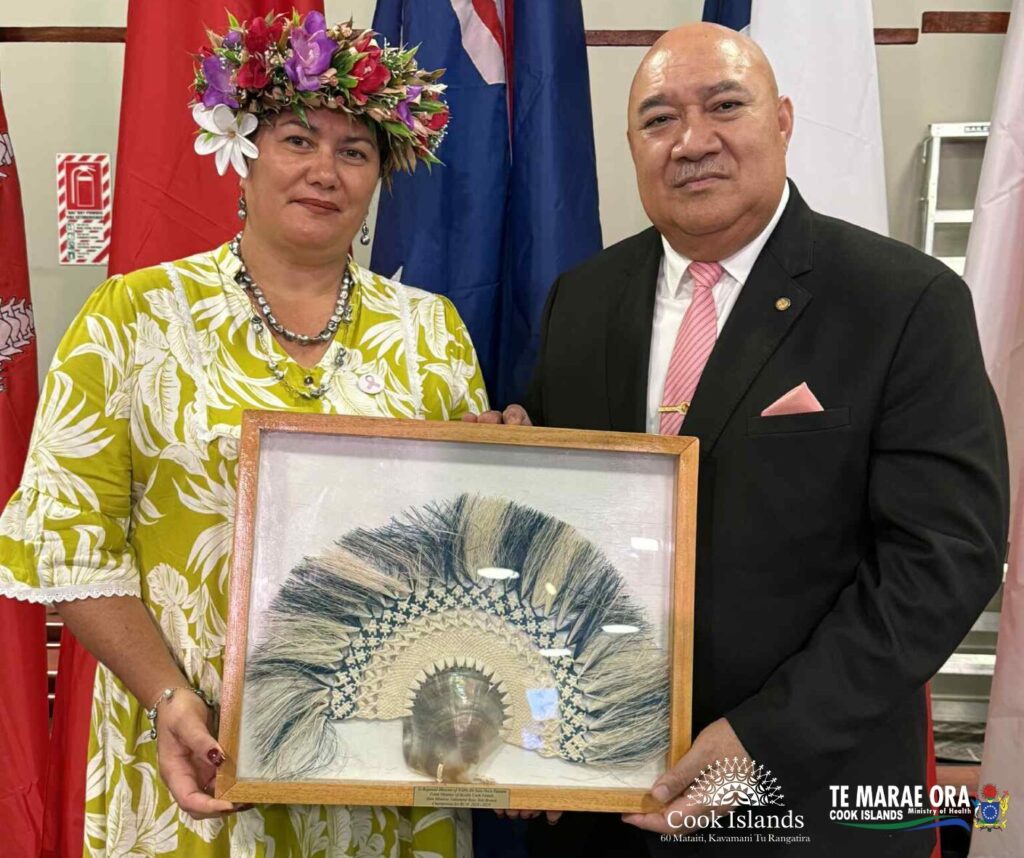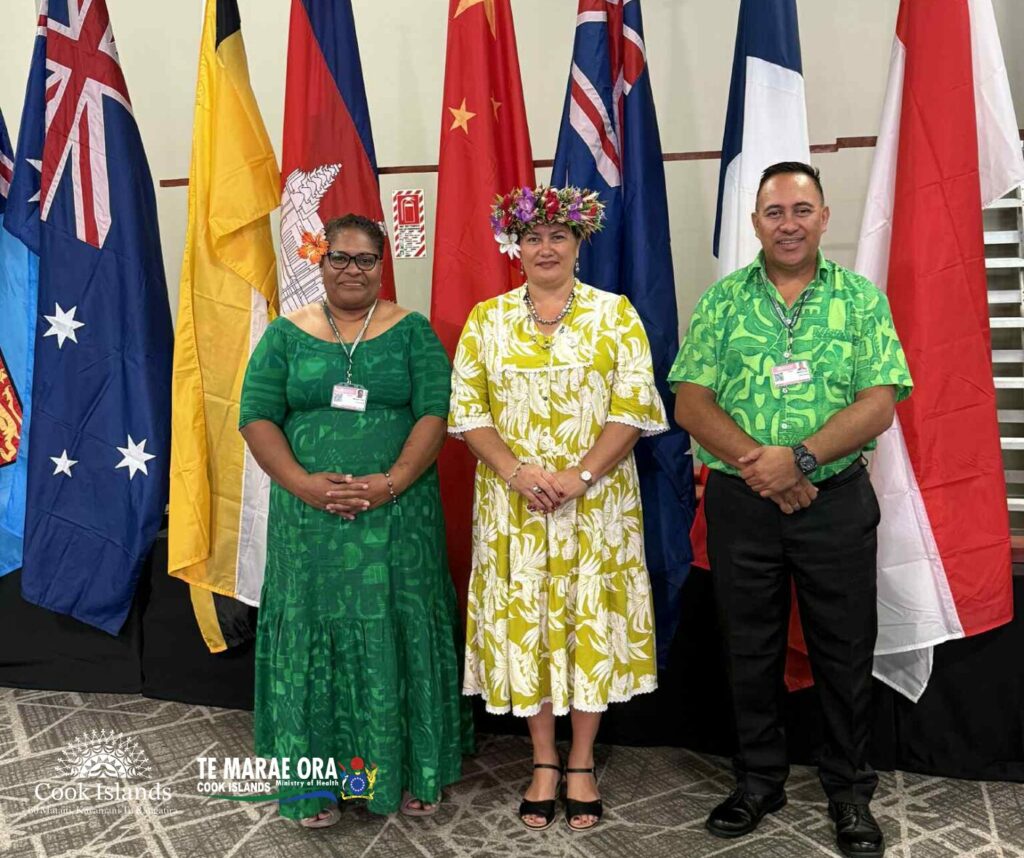On Monday 20 October, Cook Islands through the Minister of Health Hon. Vainetutai Rose Toki Brown relinquished the role of Chair to the Minister of Health Fiji, Hon. Atonio Rabici Lalabalavu for the 76th Regional Committee Meeting of the WHO Western Pacific Region (RCM).
For the first time after a decade, the 76th RCM is once again hosted in the Pacific by the Government of Fiji at Denarau Island, Nadi, Fiji. Minister Brown, the first female and Chair of the 75th Regional Committee congratulated the WHO Regional Director, Dr Saia Ma’u Piukala and Member States for its collective achievement in the last year in weaving health for all across the region.

The meeting was officially opened by the Prime Minister of Fiji, Hon. Sitiveni Ligamamada Rabuka at a special traditional welcome ceremony and to officially welcome Member States for the long week meeting. In the weekend, the Pacific Health Ministers and delegates will once again gather in Yanuca island where the Healthy Island Vision was endorsed by Health Ministers in 1995, to celebrate 30 years of Healthy Islands. This is a milestone to reflect on the journey, celebrate the progress, and renew the pacific islands collective commitment into the future.
Minister Brown highlighted the complexity and challenging landscape with the delivery of healthcare services across the region, the unique solidarity in the Western Pacific Region however is something to be cherished she added. Unity and collective collaboration defines the region and is what will help member states find its way through this difficult times of the global health architecture.
As Chair, Minister Brown further expressed her appreciation to the hard work and progress 12 months on. Despite the global challenges, the Regional Committee endorsed the Regional Action Framework for Health Financing to Achieve Universal Health Coverage and Sustainable Development in the Western Pacific Region.
The Committee also endorsed the Regional Action Framework on Digital Health which is growing at an unprecedented rate across the Western Pacific. However, these changes bring about new challenges related to governance, coordination with a wide range of actors, sustainable financing, and the ethical and secure use of digital health tools and data.
The growing need for transformative primary healthcare was also discussed. Despite over four decades since the Alma-Ata Declaration, many health systems in the Region remain hospital-centric, with primary health care still under-resourced. As countries face ageing populations, rising non-communicable diseases, and growing health security risks, transformative primary healthcare is more urgent than ever.
Last year the region also began to tackle the important issue of oral health. In our Region, Brown stated that the cases of oral diseases such as tooth decay, gum disease and tooth loss have grown by 30% over the past 30 years. One in five adults over the age of 60 has lost all their teeth, causing difficulty in eating, poor nutrition and a lower quality of life. Brown reiterated that oral diseases are largely preventable, but left unaddressed they cause pain and reduce quality of life.
Minster Brown is glad that this year the Regional Committee will consider a Western Pacific Regional Implementation plan for the Global Strategy and Action Plan on Oral Health.
The Investment Round side event had 10 countries in the Western Pacific Region pledged US$ 12.1 million to support WHO’s work. This just one of many important moments of WHO’s Investment Round which has to date raised over US$ 2 billion in pledges, many of which came from Member States. This, combined with the recent approval by the 78th World Health Assembly of a 20% increase in assessed contributions, and other significant commitments from Member States and partners, has made a critical difference to WHO. These contributions have provided the Organization with much-needed stability, enabling it to navigate current global challenges with greater resilience than would have otherwise been possible.
At end of her address, Minister Brown presented a gift to the Regional Director as a token of appreciation acknowledging WHO’s supportive role while serving as Chair for the 75th Regional Committee.

END
